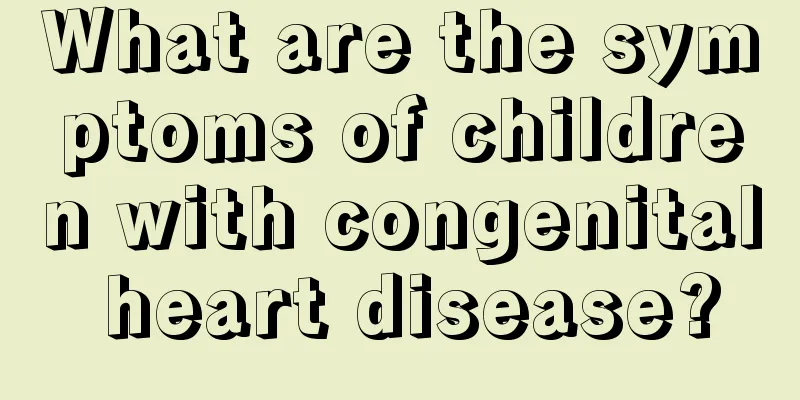What are the symptoms of children with congenital heart disease?

|
Congenital heart disease will affect and threaten the healthy growth of the next generation. Although the pathogenesis of this disease is still unclear, it may be caused by multiple factors such as genetics, viral infection, environmental pollution, radiation, etc., but it must be taken seriously by each of us, such as strengthening screening and health care for pregnant women. Many people may still have questions: how should children with congenital heart disease be treated? Congenital heart disease is the most common type of congenital malformations, accounting for about 28% of all congenital malformations. It refers to anatomical abnormalities caused by formation disorders or developmental abnormalities of the heart and large blood vessels during embryonic development, or the failure of channels that should close automatically after birth to close (normal in the fetus). The incidence of congenital heart disease cannot be underestimated, accounting for 0.4% to 1% of live births, which means that there are 150,000 to 200,000 new patients with congenital heart disease in my country every year. The spectrum of congenital heart disease is particularly broad, including hundreds of specific types. Some patients may have multiple malformations at the same time, and the symptoms vary greatly. The mildest case may be asymptomatic throughout life, while the most severe case may show severe symptoms from birth such as hypoxia, shock, and even death. Based on hemodynamics combined with pathophysiological changes, congenital heart disease can be divided into cyanotic or non-cyanotic types. There are many types of congenital heart disease, and their clinical manifestations mainly depend on the size and complexity of the malformation. Complex and severe malformations can cause serious symptoms shortly after birth and even be life-threatening. It should be noted that some simple deformities may not have obvious symptoms in the early stages, but the disease may still potentially develop and worsen, and require timely diagnosis and treatment to avoid losing the opportunity for surgery. Congenital heart disease cannot be ignored, especially for expectant mothers. They should pay attention to this issue before pregnancy, that is, do not smoke, do not drink alcohol, maintain a good and peaceful mentality and an optimistic and positive mood. Pregnant women should try to avoid exposure to radioactive substances, such as X-rays, electromagnetic radiation, etc. during pregnancy, so as to avoid harm to the baby. |
<<: What are the taboos for baby swimming?
>>: How to check amblyopia in children?
Recommend
How to care for a four-month-old baby
The baby's body is very fragile, and the baby...
Why does my child keep having a dry cough?
Children are the group most prone to coughing. So...
What is the best way to treat tooth decay in children?
Children's tooth decay needs to be treated ea...
What medicine should children take for intestinal spasms
Childhood intestinal spasms are a disease that is...
How to take care of a child's slow growing hair?
When babies are born, we find that some babies ha...
Normal range and prevention of high myocardial enzymes in children
Children have weaker resistance and are more like...
What is the reason for a child's persistent high fever?
When a child is found to have a high fever, appro...
Is it good or bad for babies to always sleep on their stomachs?
For little babies, their every behavior attracts ...
Why does a three-month-old baby have green stools?
Newborn babies are the apple of the family's ...
What are the methods to stop baby's cough?
When a baby has a cough, timely treatment is need...
Do all newborns have jaundice?
Neonatal jaundice is a normal phenomenon. Most ne...
Three month old baby has dry skin
The skin of newborn babies is very delicate and l...
What should I do if my newborn baby has an uneven face?
When newborns are just born, do you think that ev...
What to do if a one and a half year old child has a fever
Children can be the hope of the entire family. On...
What is the white spot on the tip of the newborn's nose?
People who have given birth to a baby or have a b...









